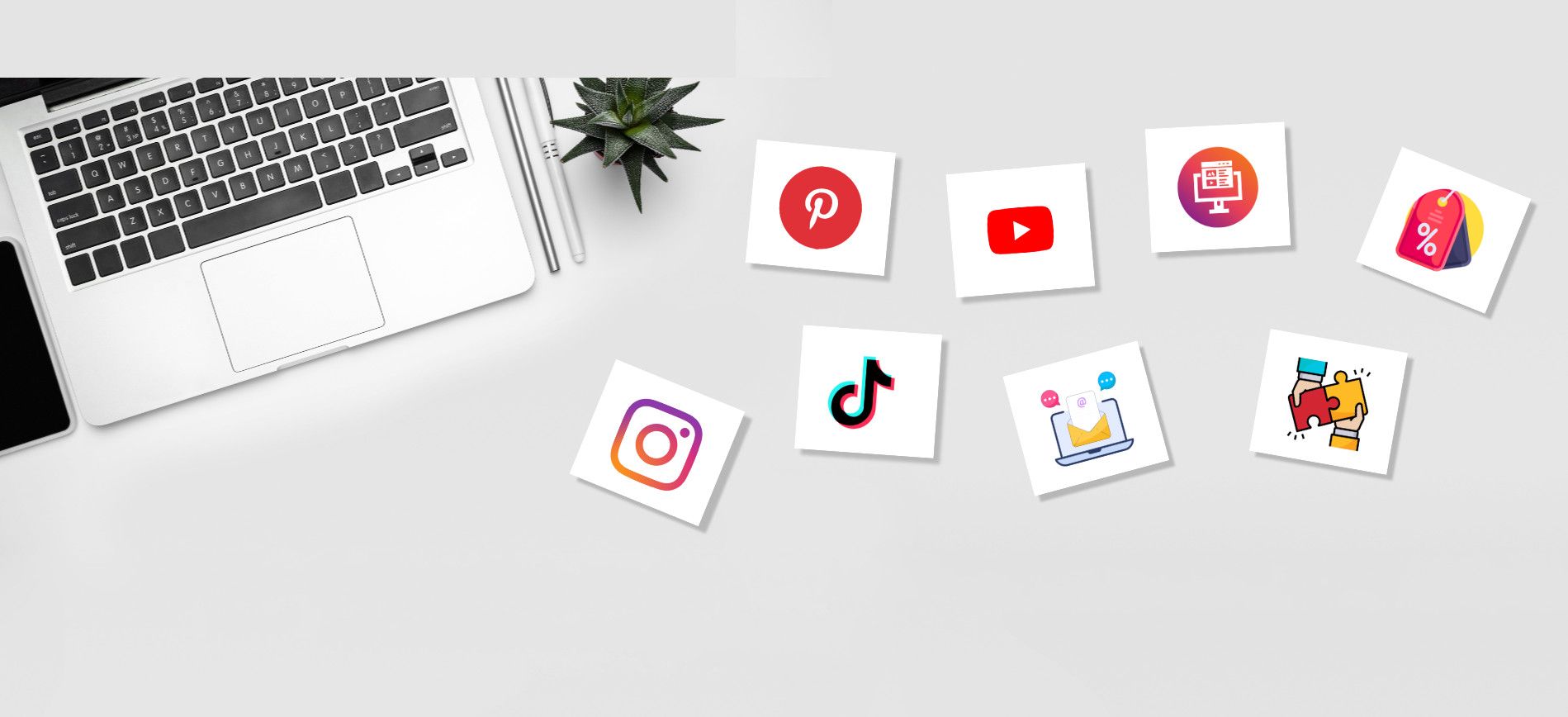5 virtual event strategies to strengthen your brand image
May 9, 2023
Brand image is the overall impression that a brand creates in the minds of its customers—a mix of all the thoughts, feelings and associations customers instinctually have when they hear a brand’s name or see its logo. Brand image is influenced by a variety of factors, including the brand's logo, messaging, products or services, customer experiences, and interactions with the brand.
Strengthening your brand image is important for several reasons:
- It increases your visibility and brand recognition. Brand image can make it easier for customers to find and learn about your products or services. Brand recognition and visibility is crucial to capturing new leads as 84% of users are sometimes, often or always influenced by brand familiarity when they’re purchasing a product. The more familiar they were with a brand, even if they hadn’t bought from that brand before, the more likely they were to purchase from them.
- It increases top of mind awareness. Top of mind awareness refers to the first brand or product a customer thinks about when they encounter a specific problem or need. For example, if a customer is looking to redecorate their home, what is the first store they think about visiting to browse furniture and decor? That’s top-of-mind awareness. Customers are more likely to immediately turn to the brands they like or think of positively, meaning the better your brand image, the more likely you’ll be their first stop.
- It helps to differentiate your brand from your competitors. Echoing the last two points, a strong and unique brand image can really push your brand to the forefront of the competition and differentiate it from the others.
- It can help to increase the value and perceived quality of your products or services. Customers often associate strong brand image with high-quality products or services, and may be willing to pay a premium for a product or service that is backed by a well-known and trusted brand.
- It can help to increase customer loyalty and engagement. When customers have a positive personal experience with your brand, such as strong customer service, they feel cared for and valued and are more likely to become loyal customers who are engaged with your brand. Customer loyalty has also been shown to increase when customers respect or share values with a company. Similar values on topics such as environment, social equality, ethical product production, and ethical labor have shown to strengthen customer-brand relationships and highly influence purchasing choices over competitors.
- It increases word of mouth marketing. Word of mouth marketing is exactly what it says—it’s when people hear reviews about your brand from others (be it family, friends or strangers). Positive word of mouth is key to your brand’s success, after all, and is currently one of the most effective trust-building marketing strategies. 88% of people strongly trust a brand if it’s been recommended to them by friends or family. Even strangers hold powerful sway—90% of people say that they are more likely to trust a brand if it’s been recommended by another customer, including strangers. And yes, according to marketers, word-of-mouth is more powerful than paid ads or social media marketing. So how can you influence word of mouth, and make sure it’s positive? Easy. Happy customers make good word of mouth marketing. Customers are more likely to tell others about brands they like or have positive experiences with and they’re more likely to recommend a brand they associate with positively.
Here are 5 strategies for strengthening your brand image that you can use in your virtual event campaigns.
Offer useful content
One way to strengthen your brand image is to focus on providing valuable, informative, and useful content that your customers can use in their everyday lives. Providing consistent, valuable content not only establishes your brand as an authority in your industry, but it also shows your customers that you care about them and are actively listening to their needs, wants, and problems. In short, publishing content positions you as a customer-centric brand that cares more about their customer’s general satisfaction than just selling more products.
For example, if your business sells cooking tools and appliances, you’d lure in more customers by posting recipes, cooking videos or cooking classes. How about posting a holiday treats workshop for the family? Or a tutorial on making the most comforting soups for fall time? Use your content to show customers how your brand fits into their daily lives.
The consistency of your content is also key. Regular content posting keeps customers coming back to your website and social pages for updates. It also ensures that your brand is always top-of-mind.
In virtual events, content is also king. According to Kaltura’s 2021 study on virtual event attendees, educational content is one of virtual events’ biggest draws. Specifically, attendees look forward to and enroll in events that provide product expert advice, Q&A, and demonstrations on products as well as skill courses. What’s more, according to studies 64% of attendees say the value and usability of an event’s content heavily influences their decision to enroll in that event.
Hosting a virtual event is one of the best strategies for offering extra content. You can offer different content segments, formats and media during the same event, from pre-recorded videos, live stream, audio, and digital text materials such as brochures, posters, documents, etc. There’s no limit to what you can offer. Virtual events also give you the opportunity to give your customers exclusive materials they can download and keep. For example, if you’re hosting a cooking workshop, you might provide downloadable copies of all the recipes you taught as well as some bonus recipes for good measure! Event attendees appreciate when you provide extra materials they can keep or access beyond the time of your event.
With that said, live video is virtual events’ greatest strength with 75% of attendees saying that live streamed content is valuable and engaging, more than any other content type. And it’s not hard to see why users love live streaming so much—it provides you with the unique opportunity to interact with your customers in real-time so they can get the most out of your content. Attendees can ask you questions, make content requests, and actively engage with your content through voting polls, comments, and on-camera participation. Giving your customers opportunities to directly engage with you and your content in real time is also great for strengthening your brand community.
Rewards
Offering exclusive customer deals and rewards is popular among businesses as an effective way to encourage customer loyalty and strengthen your brand image. Some businesses have rewards systems set up, in which customers can collect points that can then be exchanged for rewards. Offering rewards shows your customers how committed you are to them and makes your customers feel valued and appreciated, which can increase their overall satisfaction with your business.
The quality of your rewards is crucial. Here are some ideas for possible rewards to give:
- Product deals and discounts. Deals and discounts are always appreciated—after all, your customer loves your product and is probably looking to buy more of it sooner or later.
- Freebies. Freebies are items that are given away for free, typically as part of a marketing or promotional campaign. These items can range from small, low-cost items such as pens or stickers, to more substantial items like T-shirts or tote bags. Freebies can work especially well if you give out samples of newly released products. It’s a win-win—you can get testing feedback on new products before they hit shelves and your customers can feel special while they get the leg up on new stock that isn’t out yet. New product freebies also show your customers that you value their opinions and take their feedback into consideration.
- Exclusive content. This one ties with the previous point of offering useful content, except it comes with the bonus of making your customers feel special and appreciated for their time with you. Also, content rewards can be a great strategy for smaller companies whose budgets don’t include freebies or major discounts.
- Give rewards or rewards points to event attendees. Give your customers an extra incentive to attend your event by offering attendance points or rewards. For example, offer extra tutorial videos or downloadable content to attendees that you won’t release publicly.
- Offer special rewards or extra points for purchases made during shopping events. Shopping events are all about promoting your merchandise, whether it be spotlighting your best products or showcasing new ones. So why not give your customers extra rewards points or freebies for purchases made on your event products?
- Run interactive segments with rewards. Encourage your attendees to engage with your product by running interactive games, competitions or challenge segments. Set up games or challenges for your attendees where they can answer questions or vote in polls to win points.
Partner with another company
Marketing partnerships can help improve your brand image by associating your brand with a reputable and trusted partner. This can be especially powerful if the partner is a company or organization that is known for its high-quality products or services, or for its commitment to a particular cause or issue. By partnering with a credible company, you can borrow some of their credibility and trust, which can help improve the reputation of your brand.
Additionally, partnerships can provide opportunities to share expertise and resources, which can help improve the quality and effectiveness of your products or services. This can help differentiate your brand from competitors and make it more attractive to customers. Finally, partnerships can help expand your reach and audience, which can increase awareness of your brand and help improve its visibility and recognition.
Partnering up with another organization to host an event is a great way to get your customer base in the same room. Collaborating on event segments can be an amazing way to show the relationship between your organizations and the strengths each of you bring to the table. For the smaller of the two (or more) businesses, it’s a great opportunity to showcase your products or brand to a wider audience and talk to them directly or answer questions.
Expand your omnichannel strategy
Omni channel marketing is important because it allows businesses to provide a seamless and consistent experience for customers across all channels and touchpoints. This means that regardless of whether a customer interacts with your brand through your website, social media, email, in-store, or over the phone, they will receive the same high-quality experience and consistent messaging. This can improve customer satisfaction and loyalty, as well as reduce customer confusion and frustration. Additionally, omni channel marketing can help businesses gather more comprehensive data and insights about their customers, which can be used to improve the customer experience and target marketing efforts. What’s more omni channel marketing can help businesses stay competitive in today's digital landscape, where customers expect a consistent and seamless experience across all channels.
Hosting virtual events expands your omni-channel marketing strategy by adding yet another touch point where your customers can communicate with you. What’s more, it’s easy to integrate your virtual events with your other marketing channels and strategies. It’s easy to compliment your events with similar content on your website or social media platforms. For example, if you’re an art supply seller, you can create a landing page on your website where customers can learn more product specifications and make a purchase, showcase customer pieces made by using your products on social media, and then host an event workshop where you teach others to use those tools as well. Providing complimentary content across channels keeps your marketing strategy dynamic and fresh (it keeps your customers from feeling like they’re seeing the same marketing poster over and over) and it paints a holistic picture of your product, its value, and how it fits in your customers' lives.
Contribute to social or environmental causes
We previously mentioned how shared values with a company can lead to increased customer loyalty and a more positive brand image. This is particularly true for values related to the environment, social equality, ethical product production, and ethical labor. These shared values can strengthen customer-brand relationships and have a significant impact on purchasing decisions.
Actively and consistently contributing to social and environmental causes creates a positive association with your brand, builds trust and makes it more attractive to customers who value companies that give back to their communities or the world at large. Finally, contributing to these causes can also provide opportunities for your company to engage with your community and build relationships with other similar-valued organizations and individuals, which can help improve your brand's visibility and recognition.
One way you can show your dedication to your cause is to create an event in its name. Here are a few ideas on creating events that highlight your cause and show your customers you care:
- Talk about how your business process aligns with your cause. Does your company source its products through fair trade labor? Are you committed to making sure you have no-waste packaging? If your values impact your business model, process or design, share it with your customers. Transparency builds trust. Why not host a keynote speech on how your cause, how you contribute to it in your business’ everyday functions, and how you’ll continue to be better in the future.
- Host a fundraiser. Whether it’s an educational or entertainment event, fundraisers are a great way to raise money and awareness for your cause and show your customers that you’re dedicated to your values. Ask for attendees for donations, host auctions or donate a portion of your ticket revenue to a local charity.
- Partner with a charity. We talked about this point earlier in the partnering with organization section, but it’s worth mentioning here. Partnering with a charity is a great way to spotlight that charity to your following. It’s also a great opportunity to pass the mic to cause experts who can spearhead informative presentations and interviews. Marketing often tells us to grab as much of the spotlight as you can but in times like these, it’s much more powerful to give it to someone else.
Resources:
- Kaltura (2021). State of Virtual Events 2022. Industry report
- Todorov (2021). Word of Mouth Marketing: 49 Statistics to Help You Boost Your Bottom Line. Semrush
- Memon, M. (2022). Unpacking 2022 virtual events statistics. Vimeo





